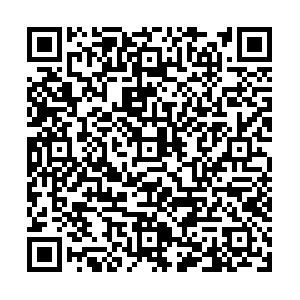Status quo of uncertainty in illness and its correlation with coping in kidney transplant recipients
-
摘要:
目的 探讨肾移植受者疾病不确定感现状,分析疾病不确定感与应对方式的相关性,为进一步研究提供参考。 方法 采用方便抽样法,选取肾移植受者259例为研究对象,使用一般资料调查表、疾病不确定感量表(MUIS)、医学应对方式问卷(MCMQ)对研究对象进行调查。 结果 肾移植受者疾病不确定感的得分为(87.86±12.67)分,其中4个维度平均得分由高到低分别为不明确性维度(37.88±8.13)分,信息缺乏维度(19.34±4.69)分,复杂性维度(16.00±3.22)分,不可预测性维度(14.63±2.62)分;肾移植受者更倾向选择面对的应对方式(64.1%),3种应对方式的平均得分分别为面对(19.98±3.81)分、回避(14.44±2.97)分、屈服(8.81±3.17)分,疾病不确定感总分、不明确性维度、复杂性维度和信息缺乏维度得分与应对方式中的屈服方式呈正相关关系(r=0.320、0.297、0.131、0.249,均P < 0.05),未发现不可预测性维度与应对方式之间的相关关系。 结论 肾移植受者的疾病不确定感处于中水平。医务人员应当注重肾移植受者疾病不确定感的评价与管理及其与应对方式的相关性,引导肾移植受者采用积极的方式应对,降低其疾病不确定感。 Abstract:Objective To explore the current status of disease uncertainty in kidney transplant recipients and analyse the correlation between uncertainty in illness and medical coping modes in kidney transplant recipients to provide reference for further research. Methods Convenience sampling method was used to select 259 kidney transplant recipients as research objects. General information questionnaire, Mishel's Uncertainty in Illness Scale (MUIS) and Medical Coping Modes Questionnaire (MCMQ) were used to survey kidney transplant recipients. Results Kidney transplant recipients' score of uncertainty in illness was (87.86±12.67) points, of which the average score of the four dimensions from high to low was the uncertainty dimension (37.88±8.13) points, the lack of information dimension is (19.34±4.69) points, the complexity dimension is (16.00±3.22) points and the unpredictability dimension is (14.63±2.62) points. Kidney transplant recipients tend to select confrontation (64.1%), the average scores of the three coping modes are confrontation (19.98±3.81) points, avoidance (14.44±2.97) points and acceptance-resignation (8.81±3.17) points. Total uncertainty in illness, uncertainty, complexity and lack of information are positively correlated with the acceptance-resignation (r=0.320, 0.297, 0.131, 0.249, all P < 0.05), but there is no correlation between the unpredictability dimension and coping modes. Conclusion Kidney transplant recipients' uncertainty in illness is at a moderate level. The medical staffs should pay more attention to the assessment and management of uncertainty in illness in kidney transplant recipients and its correlation with coping modes, guide patients to adopt effective coping modes to reduce their uncertainty in illness and promote the health of kidney transplant recipients. -
Key words:
- Kidney transplantation /
- Uncertainty in illness /
- Coping
-
表 1 肾移植受者疾病不确定感各维度得分
项目 得分范围(分) 得分(x±s,分) 不明确性 13~63 37.88±8.13 复杂性 7~27 16.00±3.22 信息缺乏 7~34 19.34±4.69 不可预测性 5~23 14.63±2.62 总分 40~117 87.86±12.67 表 2 肾移植受者应对方式得分(x±s,分)
应对方式 得分 全国常模 t值 P值 面对 19.98±3.32 19.48±3.81 7.380 < 0.001 回避 15.96±2.90 14.44±2.97 12.307 < 0.001 屈服 9.22±2.88 8.81±3.17 11.514 < 0.001 表 3 不同特征肾移植受者疾病不确定感
项目 例(%) MUIS得分[M(P25, P75)] 统计量 P值 性别 -0.314a 0.753 男 170(65.6) 87(79, 98) 女 89(34.3) 88(81, 95) 文化程度 30.118b < 0.001 初中及以下 51(19.7) 96(89, 101) 高中/中专 57(22.0) 87(80, 96) 大专及以上 151(58.3) 85(77, 94) 婚姻状况 0.235a 0.628 已婚 166(64.1) 88(79, 96) 未婚/离异/丧偶 93(35.9) 88(80, 97) 医疗付费方式 13.845b 0.001 新农合 95(36.6) 92(84, 99) 医保/公费 156(60.1) 85(78, 93) 自费 8(3.0) 94(90, 99) 家庭经济收入 14.509b 0.002 < 3 000元 85(32.8) 93(84, 99) 3 000~6 000元 100(38.6) 87(79, 95) 6 000~10 000元 54(20.8) 85(77, 92) >10 000元 20(7.72) 84(73, 92) 经济负担 13.593b 0.004 无 9(3.5) 75(70, 84) 轻 17(6.6) 83(78, 89) 中 84(32.4) 85(78, 97) 重 149(57.5) 90(84, 97) 透析类型 1.062b 0.588 血透 220(84.9) 87(79, 97) 腹透 29(11.1) 89(80, 96) 两者都有 10(3.9) 93(83, 103) 并发症 0.790a 0.374 有 197(76.0) 89(78, 95) 无 62(24.0) 87(81, 97) 注:a为Z值,b为H值。 表 4 肾移植受者年龄、透析时间、移植术后时间的疾病不确定感情况
项目 M(P25, P75) MUIS得分(x±s) rs值 P值 年龄(岁) 36(30, 43) 87.86±12.67 -0.009 0.874 透析时间(月) 12(6, 24) 87.86±12.67 0.223 0.721 移植术后时间(月) 15(7, 44) 87.86±12.67 -0.156 0.012 表 5 肾移植受者疾病不确定感与应对方式的相关性分析(r值)
应对方式 不明确性 复杂性 信息缺乏 不可预测性 总分 面对 -0.065 -0.103 -0.059 -0.062 -0.098 回避 0.087 -0.107 0.078 0.003 0.078 屈服 0.297a 0.131b 0.249a -0.012 0.320a 注:aP < 0.01, bP < 0.05。 -
[1] 刘永峰, 郑树森. 器官移植学[M]. 北京: 人民卫生出版社, 2014: 173-174. [2] 石炳毅. 继往开来, 中国器官移植的发展现状——在2018年中华医学会器官移植学年会上的报告[J]. 器官移植, 2019, 10(1): 32-35. doi: 10.3969/j.issn.1674-7445.2019.01.004 [3] MISHEL M H, BRADEN C J. Finding meaning: antecedents of uncertainty in illness[J]. Nurs Res, 1988, 37(2): 98-103. http://pdfs.journals.lww.com/nursingresearchonline/1988/03000/Finding_Meaning__Antecedents_Of_Uncertainty_in.9.pdf [4] 刘艳红, 王燕, 李胜玲, 等. 早产儿母亲积极感受与疾病不确定感相关性分析[J]. 护理学杂志, 2019, 34(24): 77-79. doi: 10.3870/j.issn.1001-4152.2019.24.077 [5] 任琳, 郎黎薇, 殷志雯, 等. 专项干预降低唤醒麻醉下颅脑手术患者焦虑及疾病不确定感[J]. 护理学杂志, 2017, 32(20): 84-87. doi: 10.3870/j.issn.1001-4152.2017.20.084 [6] 邓丽娜, 刘涛, 张会君. 老年结肠造口患者家属疾病不确定感及影响因素分析[J]. 中华护理杂志, 2015, 50(9): 1047-1051. doi: 10.3761/j.issn.0254-1769.2015.09.004 [7] 陶金冉, 邱光伟, 张倩, 等. 消化道早癌患者疾病不确定感与应对方式的相关性研究[J]. 中国临床护理, 2019, 11(4): 277-280. doi: 10.3969/j.issn.1674-3768.2019.04.001 [8] 彭静. 乳腺癌患者术前疾病不确定感、心理韧性与医学应对方式的相关性研究[D]. 南昌: 南昌大学, 2019. [9] 谭肖燕, 韦燕芳, 傅红梅. 肾移植并发肺结核患者疾病不确定感与应对方式的相关性[J]. 中国临床护理, 2018, 10(1): 81-84. doi: 10.3969/j.issn.1674-3768.2018.01.025 [10] MISHEL M H. Uncertainty In Less scale mmanual[M]. Chapel Hill: University of North Carolina at Chapel Hill, 1997: 6-7. [11] 许淑莲, 黄秀梨. Mishel疾病不确定感量表之中文版测试[J]. 护理研究, 1996, 4(1): 59-68. https://www.cnki.com.cn/Article/CJFDTOTAL-QKYX201809020.htm [12] FEIFEL H, STRACK S, NAGY V T. Coping strategies and associated features of medically ill patients[J]. Psychosom Med, 1987, 49(6): 616-625. doi: 10.1097/00006842-198711000-00007 [13] 沈晓红, 姜乾金. 医学应对方式问卷中文版701例测试报告[J]. 中国行为医学科学, 2000, 9(1): 22-24. https://www.cnki.com.cn/Article/CJFDTOTAL-ZGXX200001007.htm [14] 黄婷, 方春华. 聚焦解决模式对肾移植受者疾病不确定感干预效果的研究[J]. 当代护士(中旬刊), 2018, 25(12): 45-49. https://www.cnki.com.cn/Article/CJFDTOTAL-DDHS201812022.htm [15] 李浩宇, 黄燕林, 黄柳, 等. 认知行为干预对中青年腹膜透析患者疾病不确定感和应对方式的影响[J]. 上海护理, 2017, 17(2): 29-34. doi: 10.3969/j.issn.1009-8399.2017.02.006 [16] 张丽鹏. 影响移植肾功能恢复的相关因素分析[D]. 长春: 吉林大学, 2018. [17] CHILCOT J, SPENCER B W, MAPLE H, et al. Depression and kidney transplantation[J]. Transplantation, 2014, 97(7): 717-721. doi: 10.1097/01.TP.0000438212.72960.ae [18] LAZARUS R S, FOLKMAN S. Stress, appraisal, and coping[M]. New York: Springer Publishing Company LLC, 1984: 19-20. [19] WELCH J L, AUSTIN J K. Stressors, coping and depression in haemodialysis patients[J]. J Adv Nurs, 2001, 33(2): 200-207. doi: 10.1046/j.1365-2648.2001.01654.x [20] 李小妹. 护理学导论[M]. 长沙: 湖南科学技术出版社, 2001: 20-21. [21] 林晓鸿, 彭晓, 张文馨, 等. 肾移植受者健康认知评价与应对方式调查[J]. 护理学杂志, 2015, 30(18): 9-12. https://www.cnki.com.cn/Article/CJFDTOTAL-HLXZ201518004.htm [22] 马立娟. 宫颈癌住院患者疾病不确定感的现状及影响因素研究[D]. 石河子: 石河子大学, 2018. [23] WU C Y, LEE Y Y, BAIG K, et al. Coping behaviors of individuals with chronic obstructive pulmonary disease[J]. Medsurg Nurs, 2001, 10(6): 315-320. http://search.ebscohost.com/login.aspx?direct=true&db=aph&AN=5738991&site=ehost-live [24] 肖志平, 温碧云, 梁锦贞, 等. 膀胱肿瘤病人疾病不确定感现况及其影响因素分析[J]. 循证护理, 2020, 6(8): 808-814. https://www.cnki.com.cn/Article/CJFDTOTAL-XZHL202008015.htm [25] 曾旭婧. 肾移植受者心理弹性与自我效能、应对方式、社会支持的相关性[J]. 解放军护理杂志, 2019, 36(5): 25-28. https://www.cnki.com.cn/Article/CJFDTOTAL-JFHL201905010.htm -

 点击查看大图
点击查看大图
计量
- 文章访问数: 244
- HTML全文浏览量: 96
- PDF下载量: 7
- 被引次数: 0



 下载:
下载: 